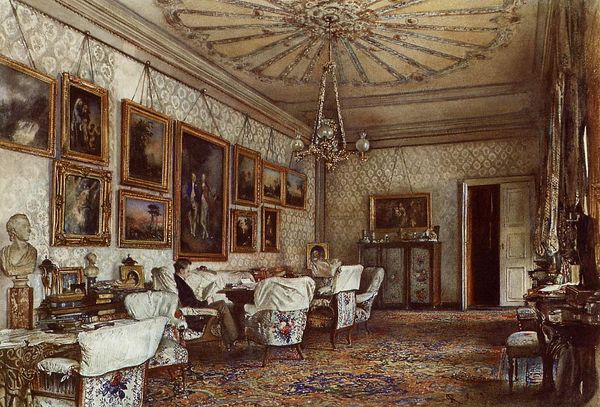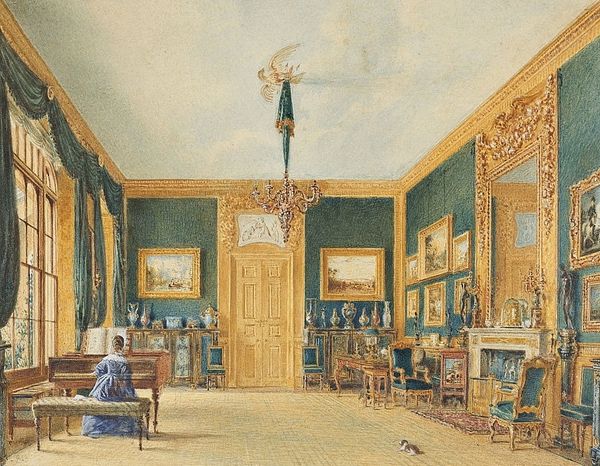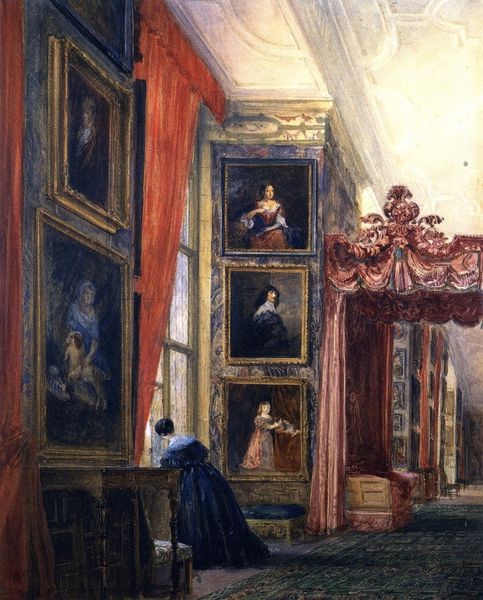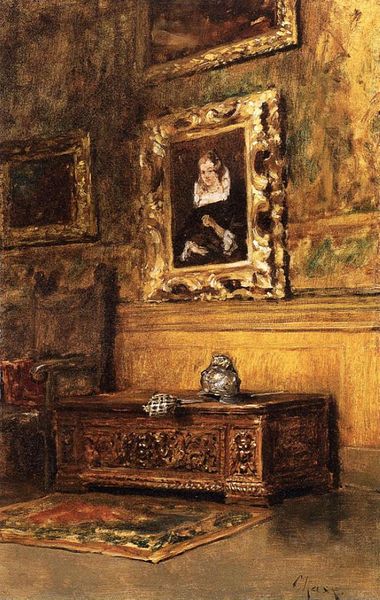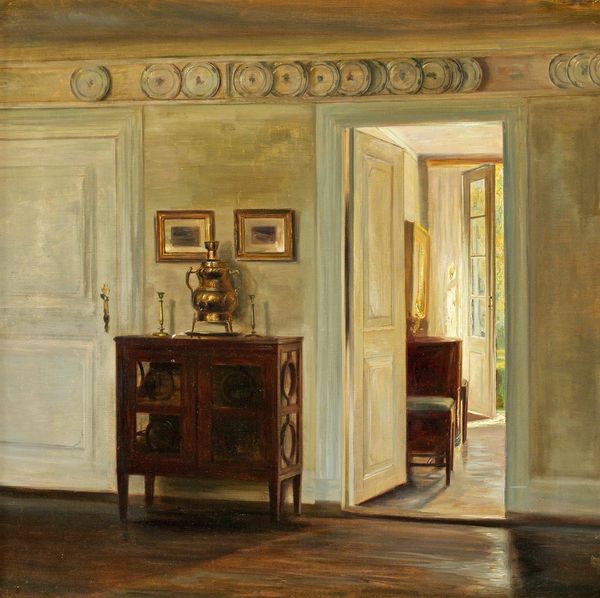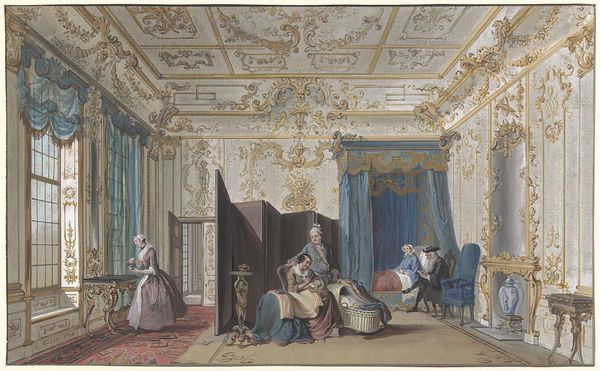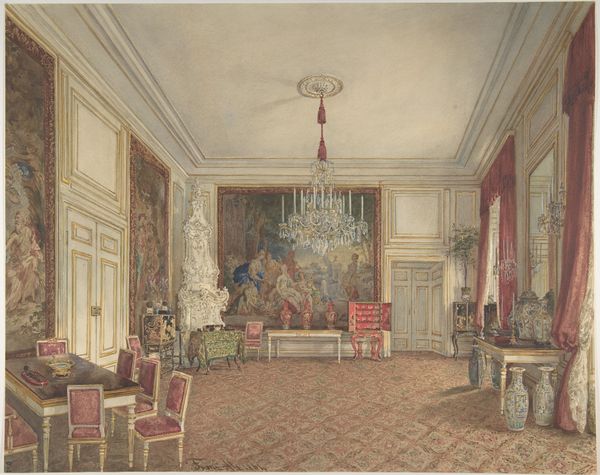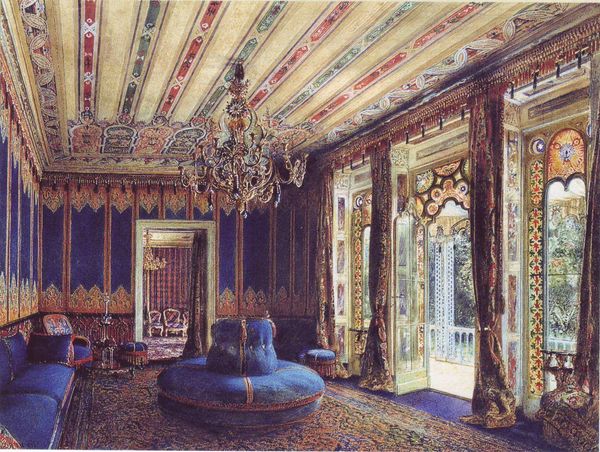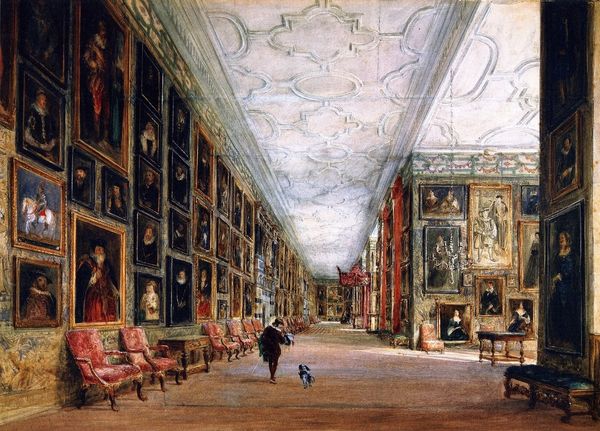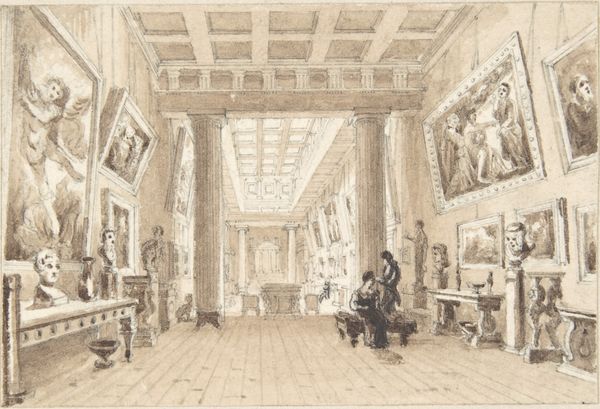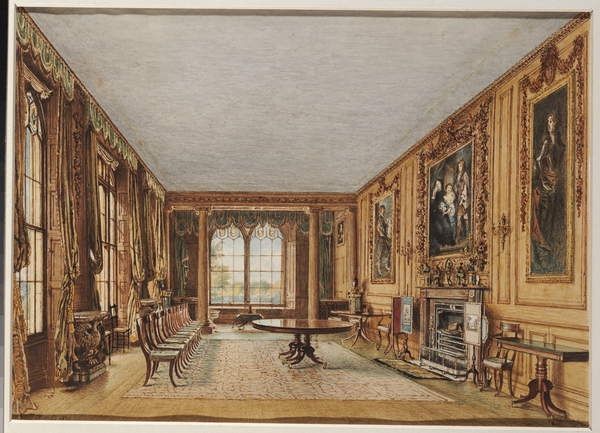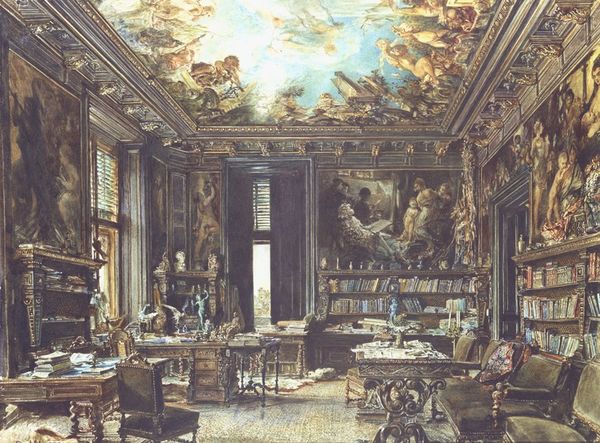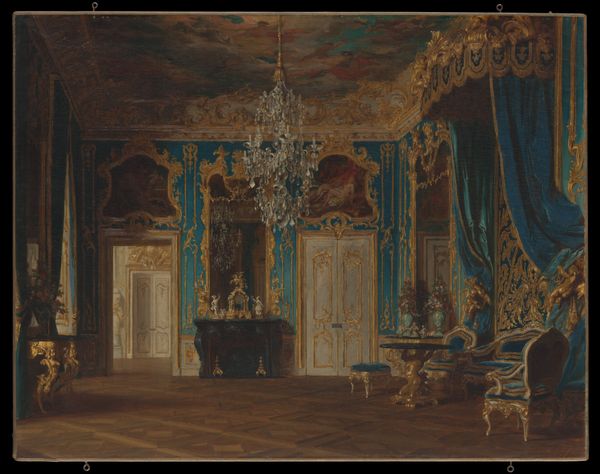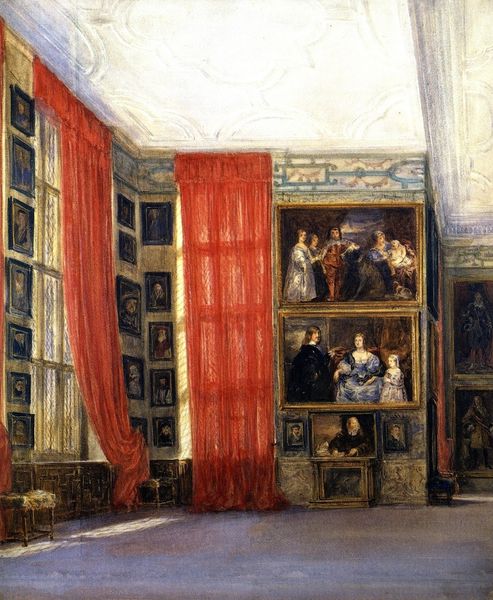
The Carved Room, Petworth House, Sussex (c1856). Verso: Sketch of a Seated Male Figure in Van Dyck Costume (1844) c. 1856
0:00
0:00
Dimensions: support: 352 x 300 mm
Copyright: CC-BY-NC-ND 4.0 DEED, Photo: Tate
Editor: Charles Robert Leslie’s “The Carved Room, Petworth House, Sussex,” feels like a stage set, doesn’t it? The heavy drapes, the portraits… what memories do these images evoke for you? Curator: This is a space filled with symbols of power and history. Look at how the portraits are arranged, almost like ancestors watching over the room, guardians of tradition. The red drapes, a recurring motif, hint at theatricality, a performance of status. What stories do you think these symbols tell? Editor: It's like the room itself is a portrait, reflecting the family's identity over time. Curator: Precisely! The room becomes a visual narrative, a carefully constructed image of lineage and authority. Editor: I never thought of a room as a kind of portrait before. Fascinating. Curator: Indeed, and how the interplay of light and shadow adds another layer of meaning to it.
Comments
tate 9 months ago
⋮
http://www.tate.org.uk/art/artworks/leslie-the-carved-room-petworth-house-sussex-c1856-verso-sketch-of-a-seated-male-figure-in-t03789
Join the conversation
Join millions of artists and users on Artera today and experience the ultimate creative platform.
tate 9 months ago
⋮
In the early 1830s Turner was a regular visitor to Petworth, the Sussex house of his patron Lord Egremont. The house contained a fine collection of old master and contemporary British paintings, and many artists were entertained there. Turner used the Old Library as a studio. As well as painting the estate, he made many drawings of the house and its inhabitants and guests. The death of Egremont in 1837, and that of his other great friend and patron Walter Fawkes in 1825, increased Turner's social isolation in his later years. Gallery label, September 2004
